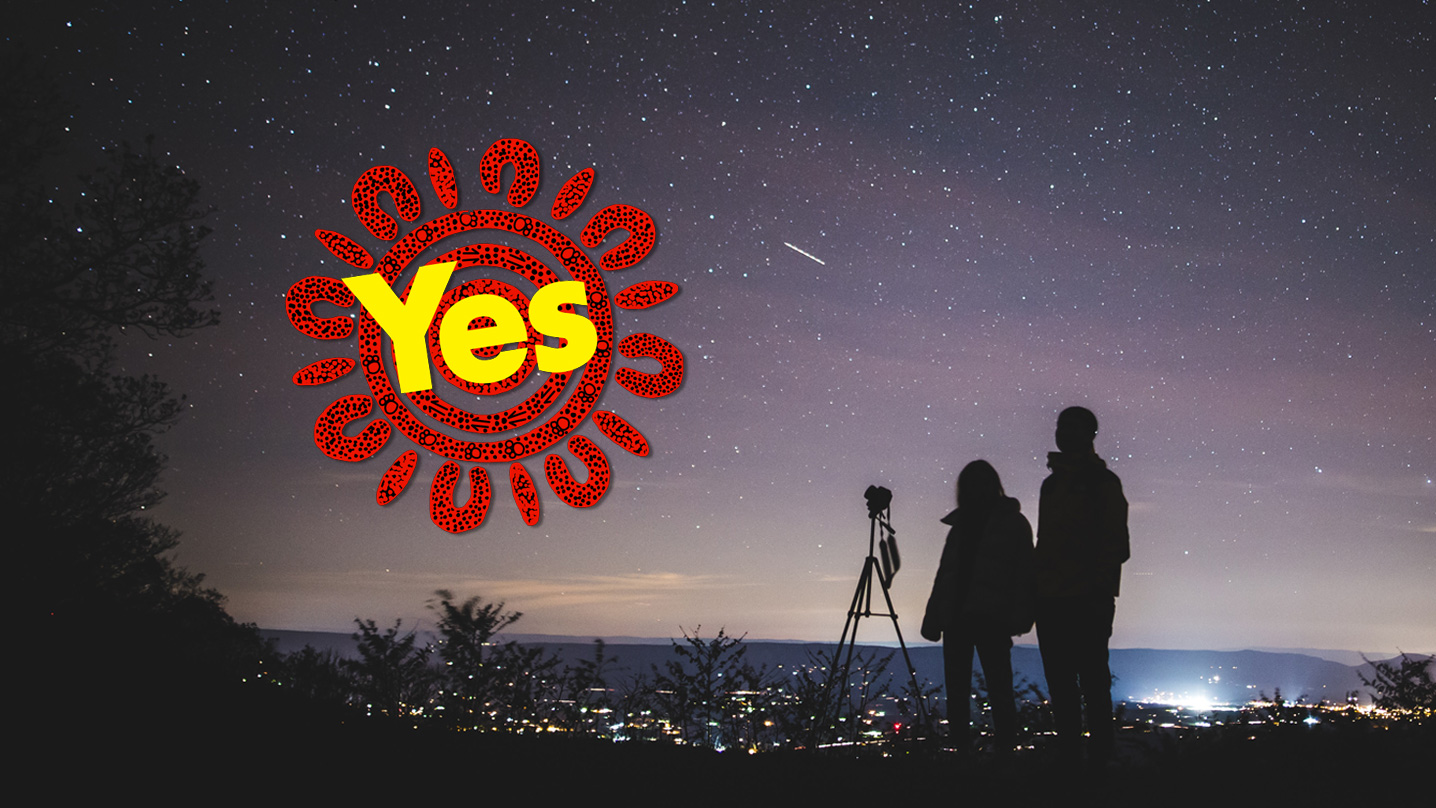From a scientific perspective, the voice is a must.

As the president of Science & Technology Australia, I've dedicated my career to exploring new frontiers in the pursuit of knowledge. Science is a process of iteration. In my field, we take our current understanding of something. Then we add an "and" - to build on what we already know.
In this quest, we must never miss the deep scientific knowledge base that has shaped this land for tens of thousands of years: the sophisticated knowledge systems forged by Australia's First Peoples.
While the scientific method often seeks to dissect and simplify, Western science has often neglected to learn from the holistic perspectives that existed here long before the scientific thinkers of Europe laid the foundations of the Enlightenment. If I'm honest, in the past I have missed much. The assumptions I've carried into my scientific endeavours often reflected a narrow understanding of "country", seeing it as merely a place on a map rather than a living, breathing entity with which we are inextricably linked.
Differing approaches to time and space embody this dilemma of complexity versus simplicity. In science, we often freeze moments, analysing static snapshots as if they exist in isolation.
Yet everything is in continual motion, connected not just in the three dimensions we easily perceive but also in the unfolding dimension of time - a concept powerfully captured in the Indigenous concept of the Tjukurrpa, or Dreamtime. In fact, the past lives within us and all around us. It is here and now.
Historically, Western science has championed Rene Descartes' reductionist approaches. It dissects nature into its smallest parts in the hopes of understanding the whole. We treated the body and country as a machine, expecting that if we study the parts, we will understand the whole.
This approach has its merits but also its failings.
Descartes famously said: "I think, therefore I am." But his most famous quote misses something fundamental to humanity - the role of collective identity, and the interconnected stories that bind us together. The connected mind and body. The deep knowledge. The long wisdom. The songlines.
If we're to move forward as a nation, we need to understand our full history. Complex and multilayered, it cannot be narrated from just one vantage point. As Narungga, Kaurna and Ngarrindjeri professor Lester Irabinna-Rigney writes, our current Constitution "left us with a view of our country seen from the arriving ships, not from the shore … and, ever since, the exclusion of that view from the shore has cut short the span of time that we think of as Australia's history".
We must also face the hard things in Australia's shared story since colonisation: the dispossession, the cultural genocide, the lost languages and knowledge. We can't ignore these chapters of our past; we must acknowledge them, learn from them, and actively forge a better future.
In line with the Australian Institute of Aboriginal and Torres Strait Islander Studies guidelines for ethical research, one path towards righting these wrongs is through informed, consensual dialogue and collective decision-making.
That's why I'll be casting a Yes vote in the October 14 referendum. Recognition through a voice will make a practical difference to deliver better results. It will bring advice and expertise into policy. I believe "Yes, and" should be our call to arms. Yes to a voice that can deliver better advice and results - "and" to a more holistic view of our nation, its shared identity and a brighter future.
We need to embrace Indigenous methodologies in scientific research, collaborate with Indigenous land managers to combat climate change, and truly listen when Indigenous leaders speak.
A voice to parliament is the logical next step for Australia. It is the right thing to do.
So let's begin the most crucial lyarn of our time, one that starts with "Yes, and" and seeks to create a future where technology doesn't override wisdom, where progress doesn't eclipse tradition, and where each one of us finds a voice in shaping the next chapter of this incredible Australian story.
We've got a lot to learn and unlearn. And, it's high time we got started. So it's a "Yes, and" from me.
Mark Hutchinson is president of Science & Technology Australia.
This piece was first published by The Australian: https://www.theaustralian.com.au/higher-education/why-ill-be-voting-yes-and-for-a-brighter-holistic-future/news-story/873c73421ef20aa8161033847e19605a






